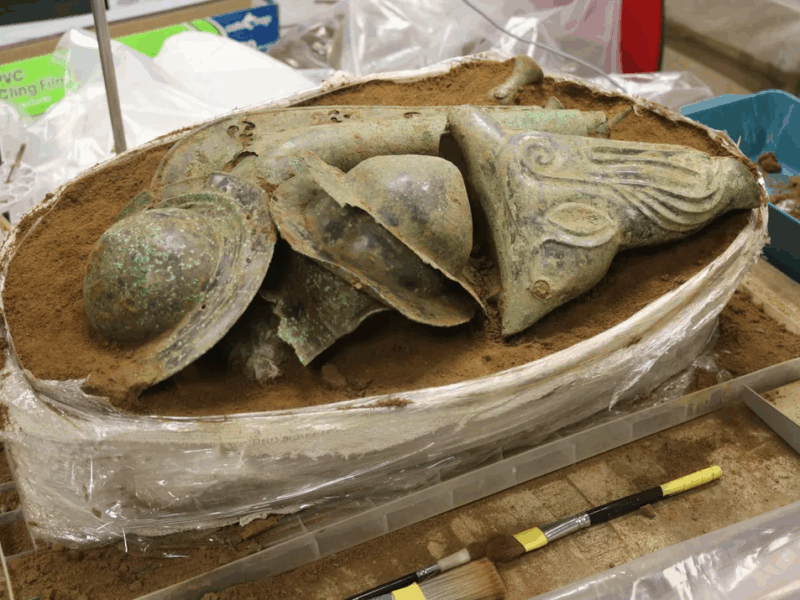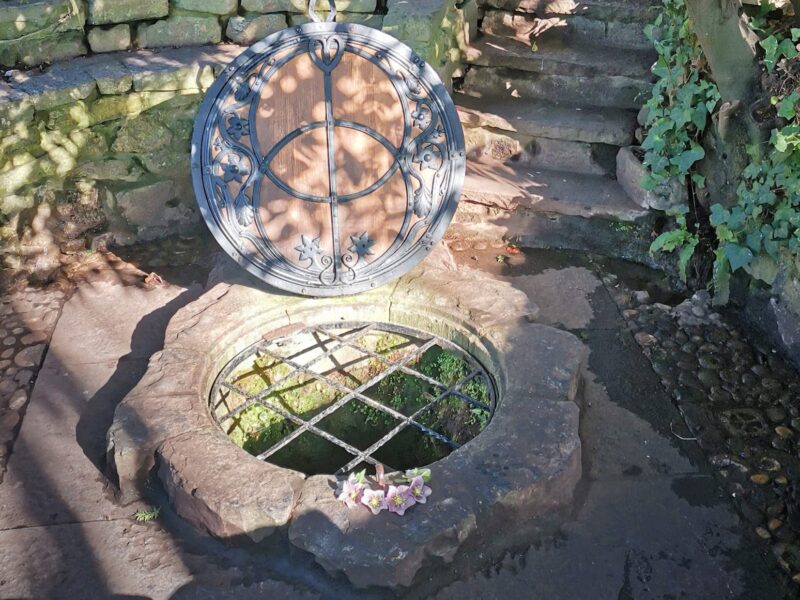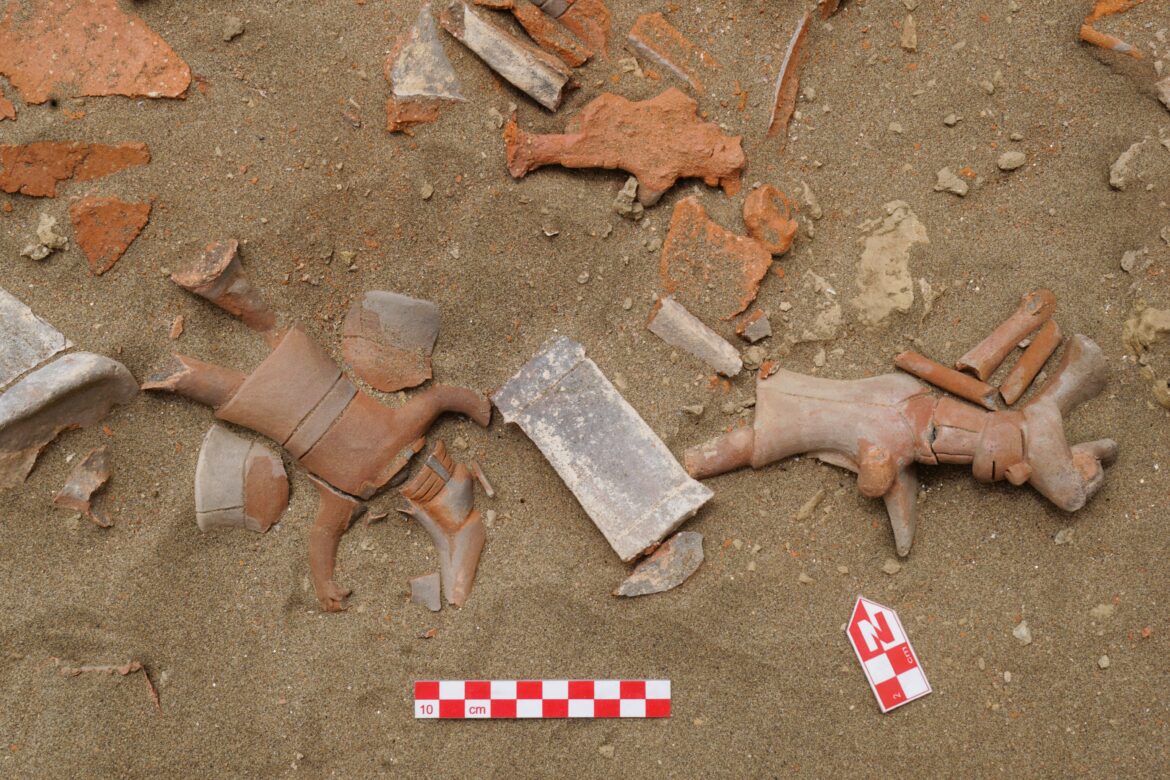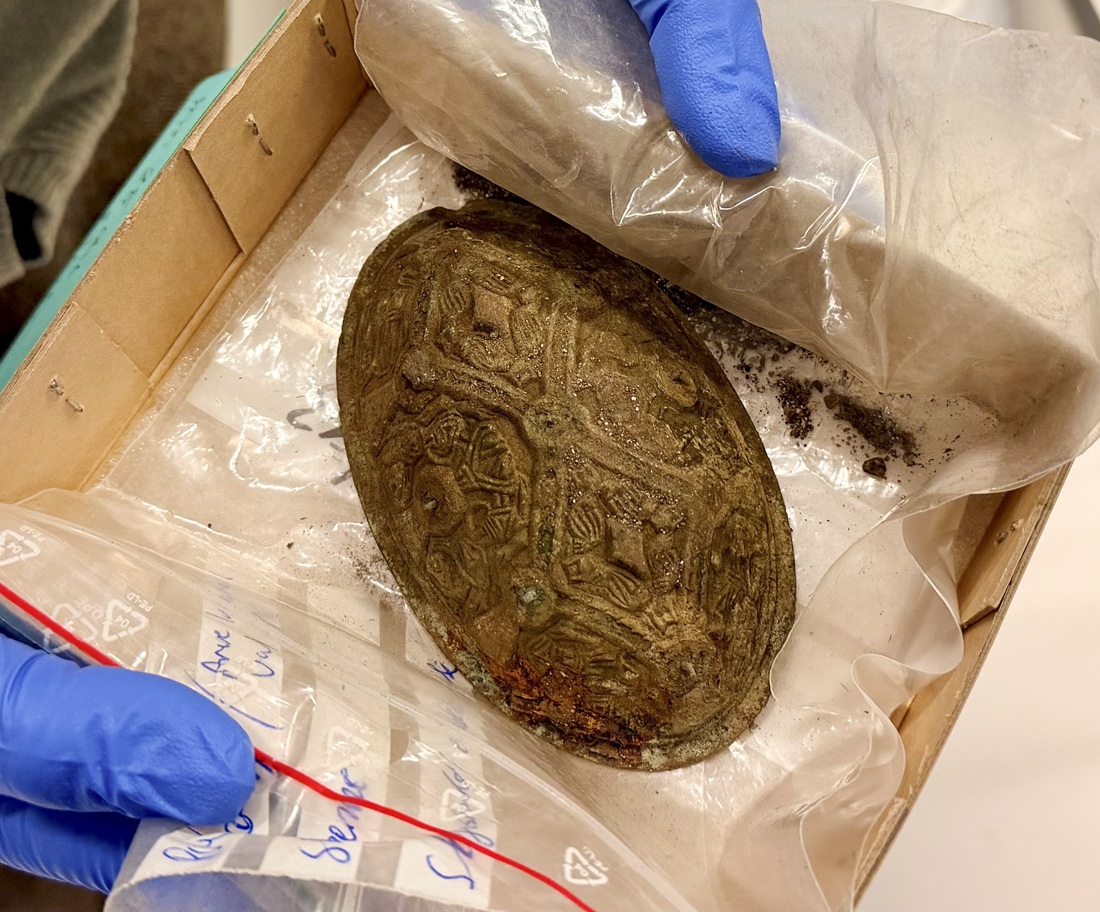An exceptionally rare Iron Age war horn discovered in Norfolk is shedding new light on Iceni culture, Celtic ritual soundscapes, and the legendary era of Boudicca, where archaeology, history, and revived Pagan traditions intersect.
Indigenous Land
Earliest Astronomical Architecture in the Americas Uncovered: A Place Where Warriors Watched the Sun
|
ew excavations at Chankillo uncovered an early astronomical structure and a ritual vessel of warrior-astronomers, revealing that ancient Andean elites linked cosmology, political authority, and martial power long before the famed Thirteen Towers were built.
Culture
A New Mystery Emerges from Ancient Norway: A Viking Woman Buried with Shells and Wings
|
A Viking woman’s grave in Trøndelag has stunned archaeologists: scallop shells laid over her mouth and bird-wing bones nearby reveal a burial practice unknown in pre-Christian Norway, raising new questions about ritual, belief, and symbolism.
News
Celtic Brain Surgery Tool Unearthed in Poland
|
Archaeologists in Poland have uncovered a rare Celtic trepanation tool, offering the strongest evidence yet that ancient Celtic healers—most likely Druids—practiced skull surgery far beyond their traditional homelands.
Culture
Ancient “Cultic” Space Discovered in the Shadow of the World’s First Metropolis
|
Archaeologists in northern Iraq have uncovered a monumental Uruk-period building that may have served as a “cultic space.” The find at Kani Shaie reveals early ritual architecture and deepens understanding of how mountain communities connected to ancient Mesopotamia’s first cities.
Europe
Chilean retiree returns a piece of history to the Acropolis
|
Enrico Tosti-Croce’s father took a piece of marble from the Parthenon in the 1930s and brought it with him to Chile. Nearly a century later, Enrico has returned the stone – and discovered it is part of an even older structure.









